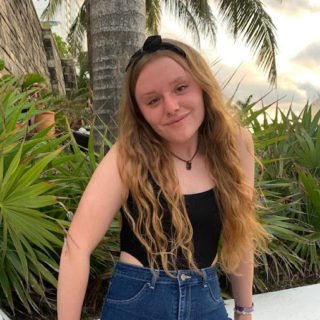Indigenous People Compensated for Canadian History Mistreatment

Indigenous people have been treated poorly throughout world history. The United States and Canada are the main contributors to the mistreatment of Indigenous people. Canada is attempting to make up for the wrongdoings with two agreements, according to a CNN article. The agreements would benefit the First Nations (terminology used in Canada to describe Indigenous people) children. They equate to $31.5 billion dollars (40 billion Canadian dollars). The two bills were in place for the hundreds of thousands of First Nation children that did not make it home and the survivors of the Canadian “school systems” in history.
The first agreement was for $15.7 billion (20 billion Canadian dollars) to potentially hundreds of thousands of First Nations children removed from their homes who did not get services or delayed services. The First Nation children were put into boarding schools where they were treated poorly and forced to conform to the ways of Canadian citizens. The second agreement is to reform the system, over the next five years, that put First Nation children in a “discriminatory” atmosphere. The bills were heavily delayed from the historical events, CNN reporter stated, “The agreements come almost 15 years after the First Nations Child and Family Caring Society brought forward a human rights complaint.” Indigenous people have faced discrimination throughout history, for the treatment of children in residential schools is just another example of the poor treatment in Canadian history.
One factor that potentially contributed to the agreements between Canada and the First Nation children is a class-action lawsuit. The compensation agreement is an attempt for the Canadian government to move past history and look forward towards better treatment of First Nation children and Indigenous people as a whole.
To restore the balance between Canada and Indigenous people, changes need to be implemented. Since the past cannot be altered, compensation to level the playing field is crucial and people recognize the need for change. Cindy Blackstock, Executive Director of the First Nations Child and Family Caring Society, spoke on the reason for the program, “‘I see it as words on paper,’ she told reporters. ‘I judge victory when I can walk into a community and a child is able to say to me, ‘My life is better than it was yesterday.’ Nothing in these words actually changes children’s lives until it’s implemented” (CNN). History has created an ongoing fight for Indigenous rights in the Americas.
While the Indigenous people are healing from the great losses they have endured, one group, in particular, is taking a stand against the mistreatment and discrimination they’ve faced. Patty Hajdu, an Indigenous Services Minister, will not rest until there is fair treatment amongst the group in Canada, “‘Canada’s decision and actions harmed First Nations children, families and communities,’ she said. ‘Discrimination caused inter-generational harm and losses. Those losses are not reversible. But I believe healing is possible.’” The bills will make it so each family that received about 2,500 dollars to respond to making amends. History cannot be changed, but we can learn from and attempt to make amends through various demonstrations of acceptance.

My name is Delaney Crum, and this is my first year being a staff member of the Spartan Scoop. When I asked my mom about how I should introduce myself...


